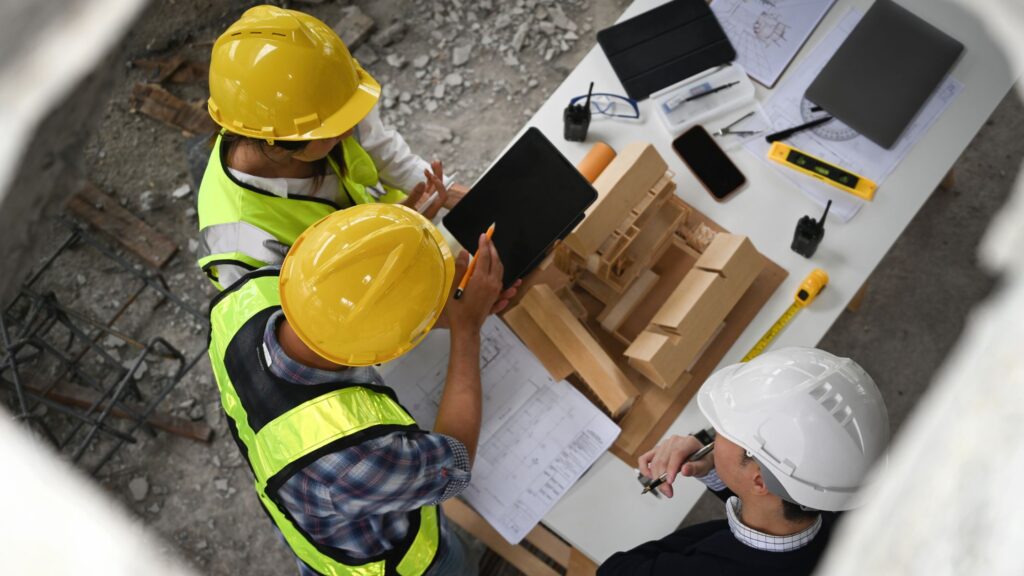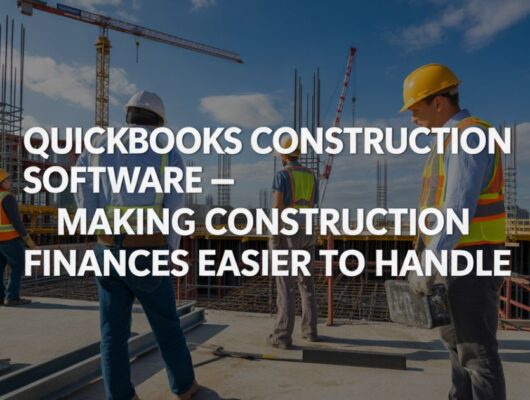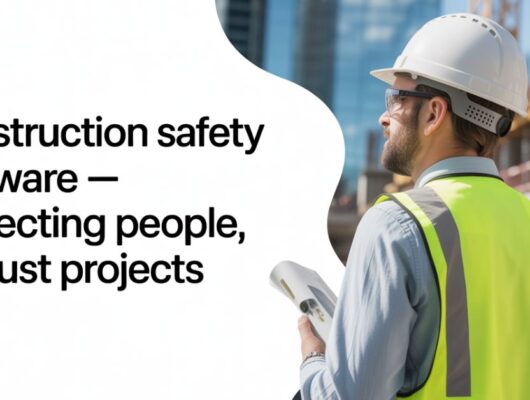Every construction project starts with an idea, but turning that idea into reality requires careful management. According to McKinsey & Company, large construction projects typically take 20% longer to finish than scheduled and are up to 80% over budget. Effective construction management can mitigate these delays and costs.
Construction management is the backbone of every successful construction project. It involves the planning, coordination, and control of a construction project from its inception to its completion, ensuring that everything is executed smoothly, on time, within budget, and in compliance with the relevant regulations and quality standards. Whether you’re constructing a residential building, a highway, a bridge, or any other type of infrastructure, efficient construction management ensures that the project meets its goals. In this article we’ll explore the core aspects of construction management and why it is crucial for successful project delivery.
Roles of Construction Manager

The role of a Construction Manager is central to the success of any construction project, as they are responsible for overseeing all phases of a project from planning to completion. They ensure that projects are completed on time, within budget, and meet quality and safety standards.
A Construction Manager can either be employed full-time by a company or work as an independent contractor on specific projects. Their role can vary significantly depending on the needs of the project. An owner may hire a construction management firm to act as their representative throughout the entire project, from initial planning to completion. Alternatively, an owner might hire a general contractor in a construction management capacity to provide consultation during the design phase and oversee the actual construction work. In some cases, a general contractor may also employ a construction manager to supervise large or multiple projects. Below are some key roles and responsibilities of a construction manager
1. Project Planning and Scheduling
The Project Management Institute (PMI) has found that 37% of construction projects fail to meet their original business intent due to poor planning. This is one of the most important tasks of construction management. This involves setting objectives, creating timelines, and identifying the resources required for the project. Detailed scheduling ensures that tasks are completed in the correct sequence, reducing the risk of delays and inefficiencies.
2. Budget and Cost Management
Construction projects are typically high-budget undertakings. Managing the budget effectively is one of the main responsibilities of a construction manager. This includes initial cost estimation, resource allocation, tracking expenditures, and ensuring that the project stays within the financial constraints set at the outset.
The Construction Industry Institute (CII) reports that projects that leverage modern construction management tools, experience an average of 10-15% cost savings. By utilizing digital tools such as EZYPRO, construction managers can optimize workflows, reduce manual errors, and ensure real-time updates, leading to more efficient resource management.
Ensuring high-quality standards is critical in construction management. Managers regularly inspect the work done to ensure it meets the project’s design specifications and industry regulations. This aspect involves close coordination with architects, engineers, and contractors to ensure that every detail is accurate and compliant.
4. Risk Management
Every construction project faces potential risks, whether from unpredictable weather, supply chain disruptions, or labour shortages. A key part of construction management is identifying these risks early on and developing strategies to mitigate their impact. Proactive risk management ensures that the project continues smoothly despite unforeseen obstacles.
5. Health and Safety Management
Safety is a top priority on any construction site. Construction managers ensure that all safety protocols are in place to protect workers and comply with regulatory requirements. They work closely with safety officers to minimize accidents, monitor hazards, and ensure everyone on site is following safety procedures.
6. Communication and Coordination
Effective communication is the backbone of construction management. A construction manager must regularly communicate with stakeholders, including architects, engineers, contractors, suppliers, and clients, to ensure that everyone is aligned with the project’s goals. This coordination ensures that any issues are promptly addressed and that the project runs smoothly.
Types of Construction Management

Construction management can be broadly categorized into four main types, each requiring a slightly different approach:
- Residential Construction Management
Focused on building homes, apartments, and other residential spaces, this type of construction management requires attention to detail, quality craftsmanship, and client satisfaction. - Commercial Construction Management
This involves overseeing the construction of commercial buildings like office complexes, shopping malls, and hospitals. Managers focus on the functionality of the space, adhering to safety codes, and ensuring the project meets the business needs. - Infrastructure Construction Management
Infrastructure projects such as roads, bridges, and tunnels are usually large-scale and require the coordination of multiple government entities and contractors. These projects also often have a public safety component that needs to be carefully managed. - Industrial Construction Management
This involves managing the construction of factories, power plants, and other industrial facilities. Industrial construction requires strict adherence to safety standards and often involves highly technical planning and coordination.
The Role of Technology in Modern Construction Management
Construction management has evolved significantly with the advent of technology. Cloud-based software like EZYPRO a cloud-based construction project management software, is revolutionizing how projects are managed. Such tools provide real-time tracking, automation of workflows, and better coordination across teams, making the construction process more efficient, transparent, and manageable.
With the help of construction management software, tasks such as cost control, scheduling, communication, and quality assurance can be handled much more effectively. This allows construction managers to keep projects on track while minimizing risks and improving overall project outcomes and can result in 30-40% cost savings.
Conclusion
Construction management is the glue that holds a project together. It ensures that everything is completed according to the plan, within budget, and to the highest quality standards. Whether you are a developer, contractor, or property owner, efficient construction management is vital for turning your vision into a reality.









1 Comment